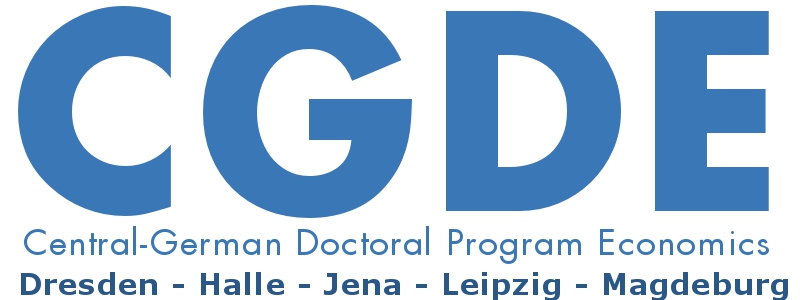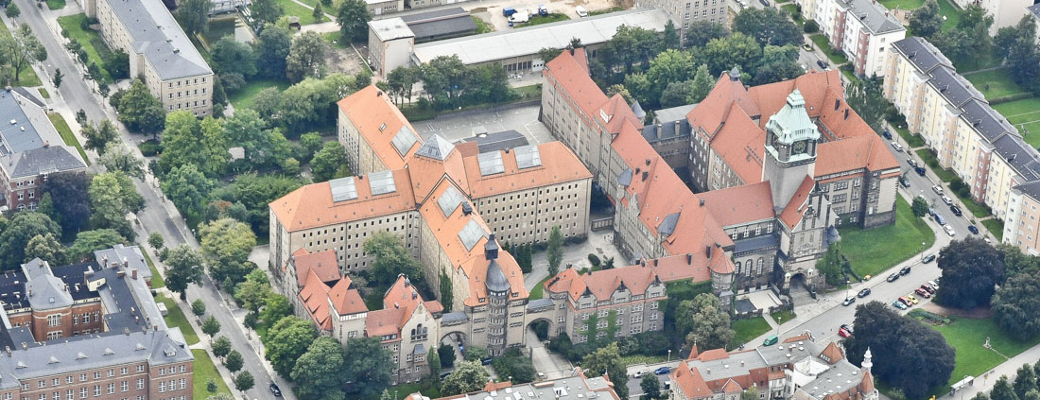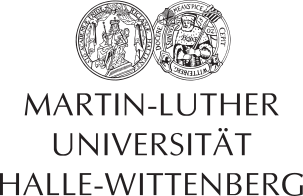Mathematics for Economists
Lecturer: Dr Roweno Heijmans (NHH Norwegian School of Economics)
Date: October 4-6 and 19-20, 2023
Venue: Halle Institute for Economic Research (IWH) – Member of the Leibniz Association, Kleine Maerkerstrasse 8, 06108 Halle (Saale), Germany, conference room (building Leipziger Strasse 100, 3rd floor).
Registration: Please register for the course until August 31, 2023 by sending an e-mail to cgde@iwh-halle.de.
The course is designed for at most 20 participants. Places will be allocated preferentially to first and second-year PhD students. Selected participants will be informed after the registration deadline.
Announcement: pdf
Course description
The goal of this course is to give students an overview of the basic mathematical knowledge necessary to succeed in an economics PhD program. We focus on the application and use of concepts, not on proofs or greatest possible generality. Should abstract mathematical results be needed to develop specific ideas, those will be covered only on a need-to-know basis.
Students in the PhD programme are diverse. For some, the materials covered will be repetitions of knowledge previously acquired. For others, the course contents will be more challenging and require additional self-study and solving exercises at home. We aim to mitigate those differences as much and possible and create a level playing field for everyone to do well in other courses.
Schedule
09:00 – 10:30 class
10:30 – 10:45 coffee break
10:45 – 12:15 class
12:15 – 13:30 lunch
13:30 – 14:45 class
14:45 – 15:00 coffee break
15:00 – 16:30 class
16:30 – 17:00 extra time if we can’t cover all lecture materials
Course contents (chapters refer to the primary textbook unless otherwise mentioned):
1. Real analysis (Simon & Blume)
a) Functions
b) Series and sequences
c) Limits
d) Differentiation and integration
e) Implicit function theorem
2. Linear algebra (Ch. 1)
a) Matrices, determinants, inverses
b) Vector spaces
c) Jacobians
3. Constrained optimization and optimal control (Chs. 2, 3, 9, 12)
a) Types of problems: static, dynamic, deterministic, stochastic
b) Types of constraints: equality, inequality, static, dynamic, hard, soft
c) Lagrangian, Hamiltonian, Bellman
d) Kuhn-Tucker
e) Linear programming and duality
4. Theory of dynamic systems (Chs. 5 – 7, 11)
a) Difference equations
b) Differential equations
5. Introductory set theory and topology (Ch. 13 & 14)
a) Open and closed sets
b) Convexity and compactness
c) Separating hyperplane theorems
d) Fixed points
6. Probability and measure (Bain & Engelhardt)
Primary Textbook: Further Mathematics for Economic Analysis, Sydsaeter et al. (Pearson)
Complementary readings:
– Simon, Carl P. & Lawrence Blume, Mathematics for Economists Hardcover, 1994
– Silberberg, Eugene: The structure of economics: a mathematical analysis
– Chiang & Wainright: Fundamental Methods of Mathematical Economics
– Bain & Engelhardt: Introduction to Probability and Mathematical Statistics
Grading
Course grades will be determined through a final exam (details to be discussed).























